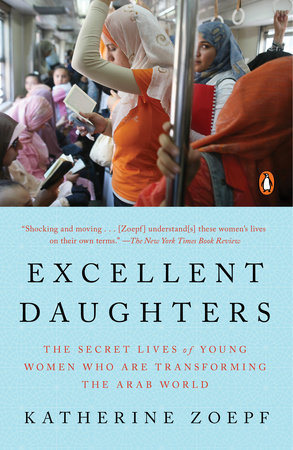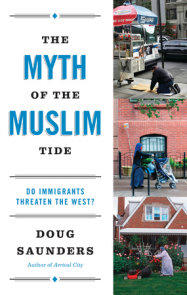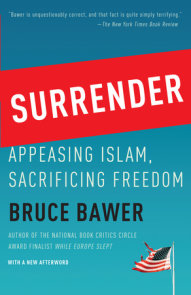READERS GUIDE
Questions and Topics for Discussion
1. In the prologue to Excellent Daughters, Katherine writes that “like a generation of young Americans, [her] interest in the Arab world was substantially shaped by the September 11th attacks.” Do you think that the 9/11 events continue to influence American thinking about and understanding of the Middle East? Why or why not?
2. Katherine describes some of her struggles adjusting to life in a society that values and protects the rights of communities over the rights of individuals. Have you ever spent time in a place with weaker traditions of individual rights, and do you think there are advantages to this approach? Why do you think the Western notion of “universal” human rights offends so many people in the Arab world and elsewhere?
3. Do you think Katherine’s life experiences helped or hindered her in this investigation? How have your own experiences helped you to relate to life in another culture as you encountered it here or in other works of journalism?
4. Lebanese women seem to receive very mixed messages on how they should be. In what ways does Western culture similarly ask women to excel in contradictory ways?
5. In Chapter Four, Katherine tells the story of Zahra, a sixteen-year-old Syrian girl who was the victim in an honor killing. “In much of the Arab world,” Katherine writes, “traditional families bring up their sons to believe in an idea of personal honor that is rooted in Bedouin tradition, and regards protecting the chastity of their mothers, sisters, and daughters as a basic social obligation.” How did you react to this notion of honor, and how do you think it compares with the way you think most Westerners would define it? Is honor an important value to you, personally? Are there aspects of honor culture that you believe persist in Western culture?
6. In Riyadh, Katherine meets teenagers who, seeking status among their peers, competitively describe their punctilious observance of parental and religious strictures. Is religious devotion and perfect adherence to rules considered “cool” among the teenagers you know personally? Why do you think many Westerners view teenaged rebellion as a normal, age-appropriate phase?
7. Do you agree with Katherine’s idea that “the world changes because of wars and terrorist attacks, but it also changes because daughters make slightly different decisions from the ones their mothers made”? Why is it so challenging to write about, and to observe, social—as opposed to political—change? Are there social norms that, in Western society, have changed in your lifetime?
8. Did reading Excellent Daughters make you feel more optimistic or more pessimistic about change in the Middle East? Why?




















